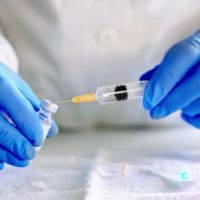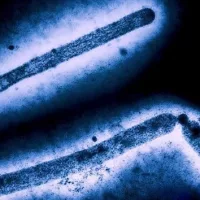
Meyer & Meyer/iStockBy ARIELLE MITROPOULOS and SONY SALZMAN, ABC News
(NEW YORK) — As the race for a COVID-19 vaccine continues, the first vaccines are likely to reach the public through a regulatory pathway specifically intended for emergency situations.
If that happens, it won’t be the first time in recent history that the Food and Drug Administration has granted an Emergency Use Authorization for a potentially promising vaccine. An EUA was granted during the anthrax attacks in 2001.
The anthrax attacks, which killed five people and harmed 22, underlined the need for a reliable anthrax vaccine. The U.S. government had been working on a vaccine for decades, which had already been used in a limited context for some members of the military.
In the wake of the anthrax attacks, postal workers — viewed as particularly vulnerable — were offered the government’s vaccine. But there were many questions about the vaccine that remained unanswered, as well as the feeling by some of the workers that they were being used as “lab monkeys” or “guinea pigs,” and that “management would do anything” to get the mail out, according to findings in the 2008 report, The Anthrax Vaccine and Research: Reactions from Postal Workers and Public Health Professionals.
Ultimately, very few postal workers opted to take the vaccine.
A few years after the attacks, the FDA’s Emergency Use Authorization program was established as part of the Project BioShield Act, and in 2005, the FDA granted emergency authorization for the anthrax vaccine.
Despite the authorization, the general public did not have access to the vaccine. Instead, the FDA specifically authorized the vaccine’s use in adults aged 18 to 65 who were deemed by the Department of Defense to be at heightened risk of exposure.
The FDA should have a “really good” reason to make a vaccine available immediately, said Dr. Joshua Sharfstein, former deputy commissioner of the FDA, now professor of the practice at Johns Hopkins Bloomberg School of Public Health, when speaking during a public Q&A with the JAMA Network last month.
The baseline requirements of an EUA are: There must be an emergency; the potential benefits of the product must exceed the risks; and there must be reasonable belief that “the product may be effective,” according to the FDA.
“COVID-19 qualifies as an emergency on the scale to justify the use of this procedure,” said Dr. Paul Wilson, an expert on vaccine development, and assistant professor of clinical population and family health at Columbia University’s Mailman School of Public Health.
“Given the guidance on what evidence will be required for a vaccine EUA, I think people’s concern should be on the potential for political pressure rather than on the EUA process per se,” Wilson said.
Scientists worry that pressure from President Donald Trump to issue an EUA prior to the general election on Nov. 3 could undermine public trust. However, the FDA has said that it plans to request two months of safety data from COVID-19 vaccine developers prior to requesting an EUA, seemingly quashing worries about a rushed “October surprise.”
And the agency has promised that its EUA standards will not compromise normal safety or efficacy steps.
“Both the FDA and the vaccine companies seem to be trying hard to restore confidence, and the recent guidance from the FDA seems completely reasonable. I’m also somewhat reassured by the fact that both FDA and companies will feel pressure to release the data on which a decision is based, which will give independent experts a chance to weigh in,” Wilson told ABC News.
Public trust in a new vaccine hinges on trust in the government and in the credibility of the public health institutions, as well as on people’s perceptions about the government’s underlying motives to accelerate its release to the public, some experts concede.
“Concerns about vaccine safety, mistrust and fears about motivations for vaccination, perceived lack of a clear recommendation,” can result in low participation in an inoculation program, wrote University of Maryland Professor Sandra Quinn, chair of the department of family science and senior associate director of the Maryland Center for Health Equity.
In 2009, during the H1N1 pandemic, Quinn conducted a survey which found that people were much more reluctant to take an “authorized” rather than fully “approved” vaccine. Only 8.7% of the respondents said that they would definitely be willing to take it, while 63.5% indicated they would not take it. Almost 28% were undecided.
Race was significantly associated with vaccine reluctance. Only 4.2% of Black Americans stated that they would take such a novel vaccine, an attitude which the study attributes to the impact of deep mistrust stemming from medical experiments, such as the Tuskegee syphilis study.
“Our finding that the majority of people would not accept a new but not yet fully approved vaccine is very worrisome,” concluded Quinn, in 2009.
Now, some experts are warning that the same fate could be in store for any COVID-19 vaccine granted emergency use authorization, and caution that anti-vaccine sentiments are stronger today than a decade ago.
Public confidence in a potential COVID-19 vaccine remains concerningly low. According to a recent Axios/Ipsos poll, 60% of Americans say they are not likely to get a first-generation COVID-19 vaccine as soon as it’s available, with only 39% saying they are likely to get it.
“There’s a lot at stake here,” said Wilson. “The approval of a vaccine on shaky grounds or without the whole-hearted endorsement of the public health community would accelerate the erosion of faith in vaccines in general, which would be tragic.”
Copyright © 2020, ABC Audio. All rights reserved.















